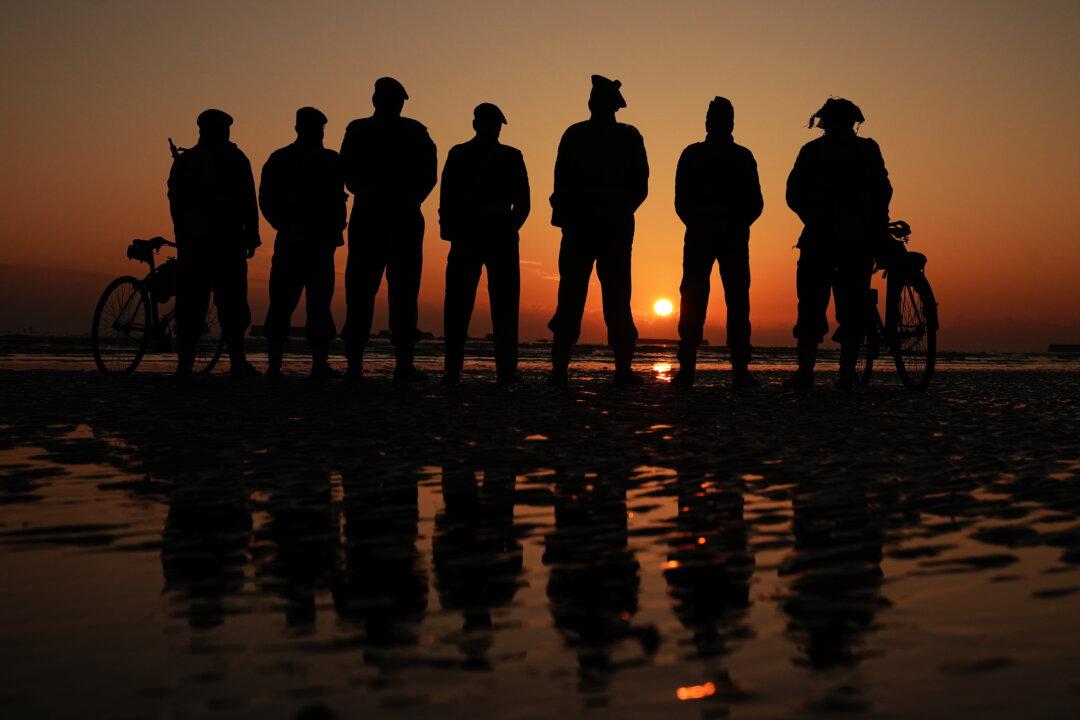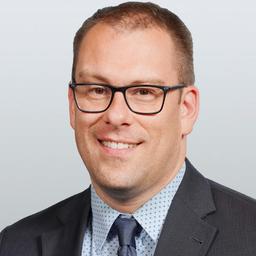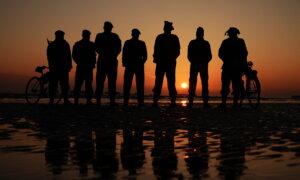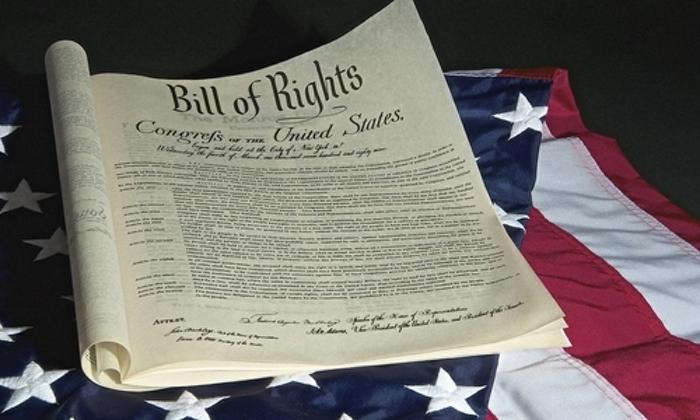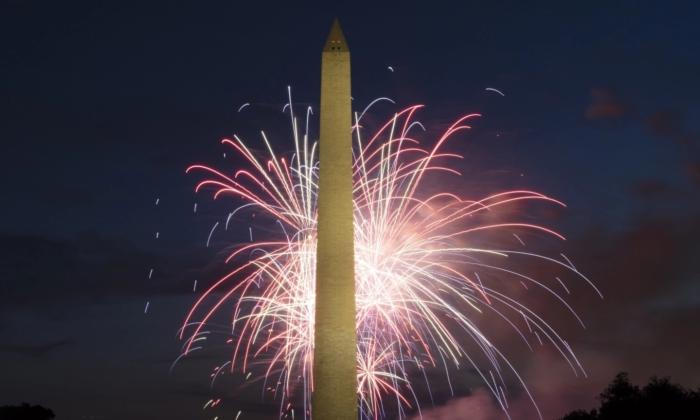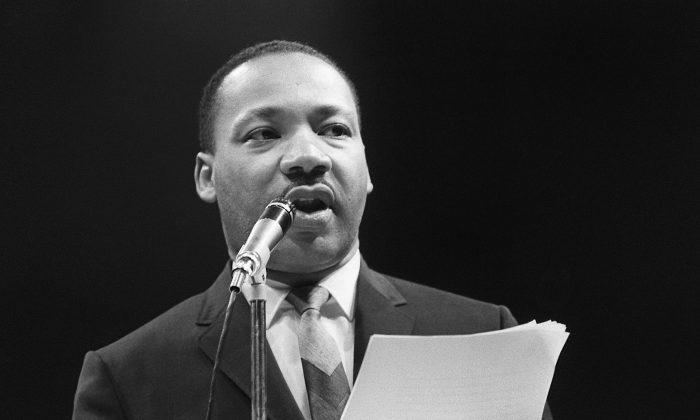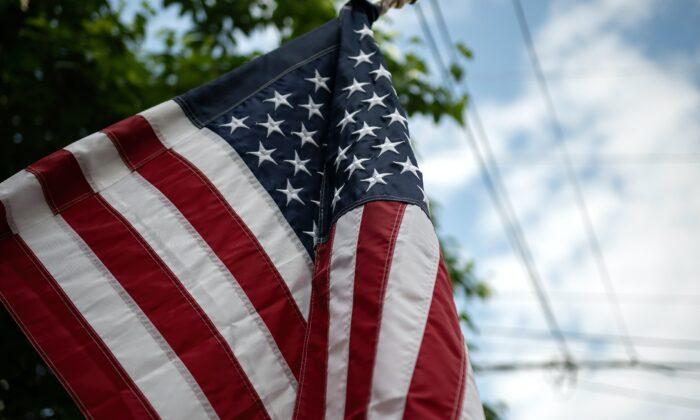After watching “Band of Brothers” in 2007, I began interviewing World War II veterans from Puyallup, Washington, my hometown. Among them were several veterans of the D-Day invasion who described in vivid detail the events that changed the course of history. As we commemorate the 80th anniversary of that heroic moment, we should have immense gratitude for those who sacrificed much to preserve the cause of liberty around the world.
When Pfc. Douglas Scott, an Army engineer, came ashore in the early hours of June 6, 1944, the channel was filled with explosions. “All of a sudden, you’re trying to get out of sight in a hurry,” he told me. “We swam in the water first, then we waded up to shore. They were trying to take care of some of the wounded. There were more than the medics could take care of. The tide came in and washed a few of the wounded out to sea.”
The main landing area grew so crowded that the second wave of engineers from the 348th Combat Engineers was rerouted over to Omaha Beach. Among them was Al Gerstmann, who graduated from Puyallup High School in 1942 and then worked in the Bremerton Naval Shipyard, helping to repair the USS Nevada after it was damaged at Pearl Harbor. By June 6, 1944, Gerstmann was a combat engineer, and the Nevada was providing off-shore support, shelling the German arsenal on Omaha Beach. “The shore was just packed with wounded,” he recalled. Gerstmann took shelter near a field hospital under a steep cliff. He recalled how the beach shook when the German artillery landed in the water nearby.
One of the medic’s aides who landed on Utah Beach with a glider detachment of the 101st Airborne was Bob Leonard. His glider missed its target and came in near the water. Like so many who took part in the D-Day operation, it was Leonard’s first combat experience. He told me, “The first realization I had of what war was—was a body rolling back and forth in the water.”
Another D-Day veteran I interviewed was Staff Sgt. Ed Porter, who had been a semi-pro New York Rangers hockey player when his draft number was called. He told me about the terrible holding period before his tank unit was cleared to go ashore, as he waited for men such as Scott and Gerstmann.
“We sat there and waited for the engineers to clear the beach,” he said. “They had all those obstacles in the ground, and we couldn’t get onto shore with our [landing ship tanks]. We were sitting on these LSTs with our tanks ready to go, and you could look over the sides, and nothing but floating GIs. It was a bloody sight for us. We had never been to war. That was our first baptism of fire. ... The movies are gruesome, but not as gruesome as it really was. Looking back, it was just like you were looking at a hell.”
Each of these men went on into the heart of Europe, taking part in the liberation of the continent from Nazi rule. Each of them came home to Washington state, where Porter was a Tacoma police officer, Leonard was a YMCA director, Scott was a truck driver, and Gerstmann was a Lutheran minister. They raised families and got involved in the community.
For Gerstmann, it was decades before he could open up about his experiences on D-Day. “I didn’t talk about it for years and years and years,” he told me.
Tom Brokaw famously called these men and their generational peers the “Greatest Generation.” Though some had difficulty sharing the things they experienced in that war, we who benefit from their sacrifices 80 years later should not hesitate to learn all we can of their stories.
What motivated the American servicemembers who did their part on D-Day? As the historian Stephen E. Ambrose wrote in his book “Citizen Soldiers”:
“At the core, the American citizen soldiers knew the difference between right and wrong, and they didn’t want to live in a world in which wrong prevailed. So they fought, and won, and we all of us, living and yet to be born, must be forever profoundly grateful.”
Americans fought so hard and for so long because they knew the fate of a free world depended on victory.
Eighty years after these young Americans took the beaches at Normandy, we can each do our part to keep their memory alive. We must share it with the rising generation so that they will know of the sacrifices it takes to preserve a free society.
